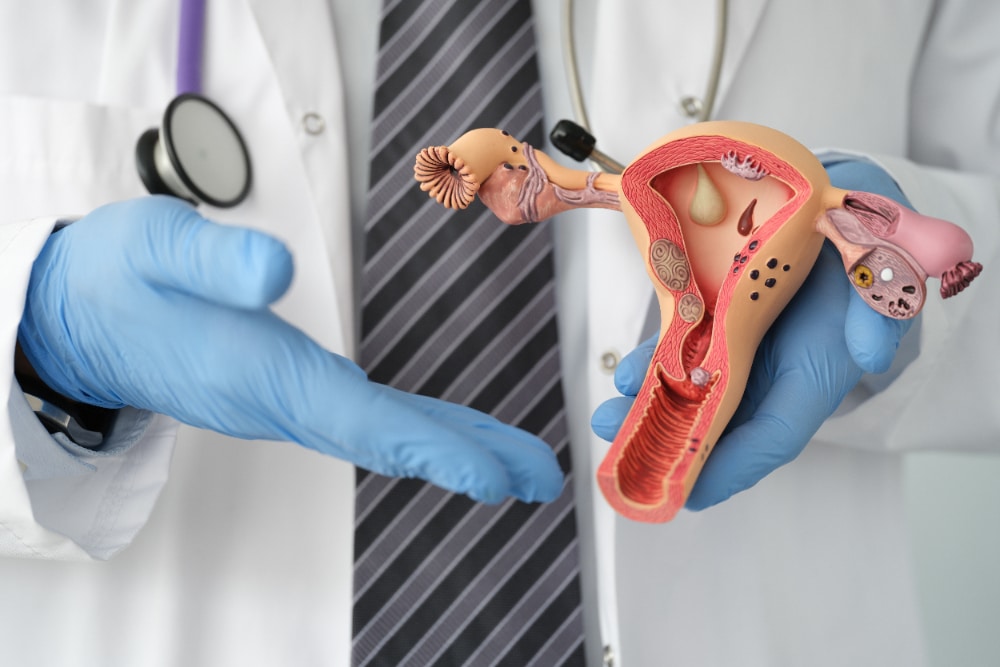8 PCOD Symptoms You Should Know About | Serene Wellness
Polycystic Ovary Disease (PCOD) is a common hormonal disorder that affects women of reproductive age. With its wide range of symptoms, PCOD can sometimes go unnoticed until it becomes more severe. Identifying early symptoms is key to managing the condition effectively. Here are some helpful tips for recognizing the symptoms of PCOD:
1. Irregular Periods
One of the most common symptoms of PCOD is irregular menstrual cycles. Women with PCOD often experience periods that are infrequent, prolonged, or sometimes absent altogether. If you notice that your periods are consistently irregular, it may be worth consulting a healthcare provider for a diagnosis.
2. Weight Gain or Difficulty Losing Weight
Many women with PCOD struggle with weight gain or find it difficult to lose weight despite regular exercise and healthy eating habits. This is due to insulin resistance, a common issue in women with PCOD. If weight management becomes a challenge, seeking professional guidance can be beneficial. And sometimes, even obesity can lead to PCOD
3. Excessive Hair Growth (Hirsutism)
Excessive hair growth on areas like the face, chest, and back is another symptom of PCOD. This is due to higher levels of androgens (type of hormones) that are often present in women with PCOD. If you notice unusual hair growth, it’s advisable to discuss it with a doctor or a specialist.
4. Acne and Oily Skin
Women with PCOD may experience an increase in acne, particularly around the jawline and chin. Acne tends to worsen in the days leading up to menstruation due to the hormonal fluctuations associated with PCOD. If over-the-counter acne treatments don’t work, consulting a specialist can help identify the root cause and find the right solution.
5. Thinning Hair or Scalp Hair Loss
PCOD can cause thinning of the hair on the scalp, which can be distressing for many women. This symptom is also linked to an imbalance in hormones, particularly androgens. If you notice your hair thinning, it’s essential to seek professional advice on how to address this issue.
6. Pain or Discomfort in the Pelvic Area
Some women with PCOD may experience pelvic pain or discomfort due to cysts developing on the ovaries. This pain can vary from mild to severe, and it may be accompanied by bloating or pressure in the abdominal region. It’s important to monitor the severity and duration of this pain to ensure proper treatment.
7. Mood Swings and Anxiety
Hormonal imbalances in PCOD can also affect mood. Many women report feeling more anxious or experiencing mood swings. If you notice a significant change in your emotional well-being, it could be a sign that your hormones are out of balance, which is common with PCOD.
8. Sleep Problems
Women with PCOD often struggle with sleep disturbances, such as insomnia or sleep apnea. These issues may be due to hormonal imbalances or other related conditions like obesity. Identifying sleep problems early on and seeking appropriate treatment can help manage these symptoms.
Final Assessment
If you identify several of these symptoms, it’s crucial to seek proper medical care and guidance. At Serene Wellness in Borivali, we offer holistic treatments tailored to your individual needs, helping you manage conditions like PCOD effectively. Our team of highly skilled homoeopathic professional, can help you in restoring your physical and emotional well-being.
Whether it’s managing hormonal imbalances or offering psychological support for associated mood swings, Serene Wellness is here to support you on your journey to optimal health. Let us help you regain your radiance and feel your best again.
Image Reference: Freepik
Disclaimer: All trademarks, logos, and brand names are the property of their respective owners. All company, product, and service names used in this website are for identification purposes only. Use of these names, trademarks, and brands does not imply endorsement.





